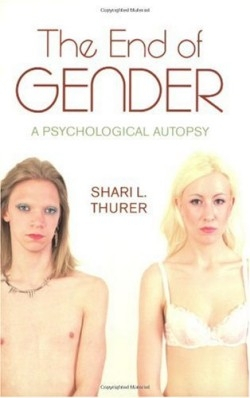The End of Gender
A Psychological Autopsy
This erudite review of multiple enactments of gender in the wake of “pomo,” or postmodern, theory is an impressive tour de force. Dedicated to “sexual nonconformists and those who love them,” it argues that the “mutually impenetrable” fields of psychoanalysis, postmodern theory, evolutionary biology, and anthropology have much to gain from sharing their insights with one another. People must move beyond outdated, socially constructed binary models and closed disciplines in order to understand how sex and gender have become permeable, mutable expressions of identity in the twenty-first century. Queer theory, the author argues, offers the most integrated, comprehensive understanding of gender identity and sexual orientation because it synthesizes the insights of all fields and is limited by none.
A discipline that rejects all categories, queer theory welcomes all sexual identities without giving preference to any. It is, the author argues, “forever indeterminate, a never-ending work-in-progress.” Breaking down all hierarchies, it continuously opposes existing modes of thought; if it once allowed itself to become defined, it would become its own enemy. Therefore, it may be more of a “disciplinary stance” than a discipline in its own right because its role is to “expose and critique underlying cultural structures for regulating sexual behavior in all disciplines.”
Each chapter looks at a different discipline’s core theories about how gender identity develops and what constitutes a healthy person. Concise summaries of Freud, post-structuralism, and French feminist theory combine with keen critiques of each theory’s strengths and weaknesses to posit that predetermined, unyielding categories of sex and gender create tragic misunderstanding and great unhappiness. The author bases her argument on cases from her own practice as a psychoanalytically oriented psychologist as well as on an impressive body of research. At her best when discussing her own case studies, she offers an array of cogent data to invalidate rigid sex/gender roles. When a lesbian patient worries that her sexual identity requires her to gain weight, for example, we understand the limitations imposed by stereotypes.
The book occasionally strives too hard for wit, and it could benefit from a subject index. This weakness, induced by the dizzying array of topics covered, only makes it hard to locate one’s favorite bit and might slow the efforts of those who want to use it as a reference tool.
The author’s first book, Myths of Motherhood: How Culture Reinvents the Good Mother (1994) has had a largely unheralded, yet nonetheless influential, effect on contemporary discourses about motherhood and its role in our culture. This current volume of gender theory offers a similarly wide-ranging, intelligent analysis that can serve as an introduction to the issues while also making its own, unique contribution.
Reviewed by
Elizabeth Breau
Disclosure: This article is not an endorsement, but a review. The publisher of this book provided free copies of the book to have their book reviewed by a professional reviewer. No fee was paid by the publisher for this review. Foreword Reviews only recommends books that we love. Foreword Magazine, Inc. is disclosing this in accordance with the Federal Trade Commission’s 16 CFR, Part 255.

